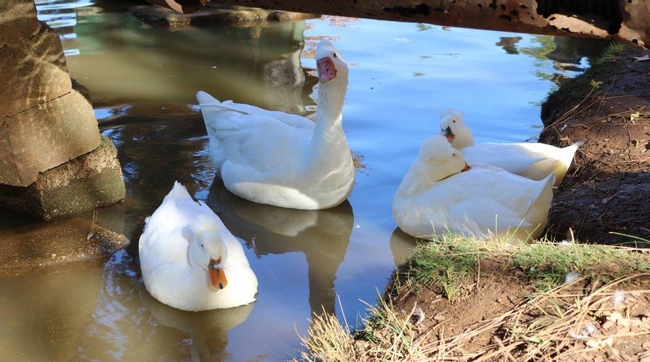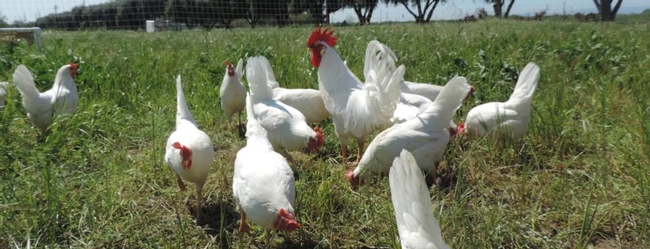To prevent outbreaks of this highly contagious virus in the United States, commercial and backyard poultry owners are being asked to fill out an online biosecurity survey. UC Agriculture and Natural Resources and UC Davis researchers are studying poultry-raising practices to help strengthen the industry's defenses against avian influenza.
“With changing migration patterns of wild birds and global movements of poultry, there is an urgent need to develop plans to protect U.S. poultry against highly pathogenic avian influenza,” said Beatriz Martínez López, director of the Center for Animal Disease Modeling and Surveillance in the School of Veterinary Medicine at UC Davis.
People who raise chickens, quail, ducks, turkeys, geese or other birds anywhere in the United States are invited to fill out the survey.
“We want to hear from all poultry producers: from the large commercial farms producing chicken eggs to the poultry enthusiasts who raise a few ornamental show birds in their backyards,” said Martínez López, who is part of the University of California's Agricultural Experiment Station.
The survey asks which bird species are being raised and a few flock management questions. Is the flock is housed or kept outdoors? How often do you get new birds? What is the source of new birds? It also asks questions about location, such as the distance of the birds from ponds and other bodies of water that may attract migrating waterfowl.
Immediately after completing the online survey, participants receive a biosecurity score and recommendations to help them make more informed decisions.
“Each producer will receive their own biosecurity score and customized recommendations,” Martínez López said. “Recommendations highly depend on the production system and we tried to adapt them to make the changes easier to implement for individual flocks.”
The survey data will be confidential and only summaries will be made publicly available in research reports and peer-reviewed publications.
By analyzing biosecurity and management practices on poultry operations and backyard flocks, Martínez López and visiting professor Sharmin Chowdhury will be able to identify high-risk locations and time periods for avian flu outbreaks. The information will be used to develop biosecurity education programs for poultry farmers, backyard producers and poultry veterinarians.
The survey takes about 15-20 minutes to complete. To participate, take the survey in English http://bit.ly/2kkMycf or Spanish http://bit.ly/2mjO13G by June 1.
This study is funded by Agriculture and Food Research Initiative Competitive Grant no. 2015–09118 from the USDA National Institute of Food and Agriculture.
[This news release has been updated to extend the survey deadline from March 1 to June 1 and to include a link to the survey in Spanish.]
MEDIA CONTACT:
Beatriz Martinez López, DVM, beamartinezlopez@ucdavis.edu, (530)752-7675.

